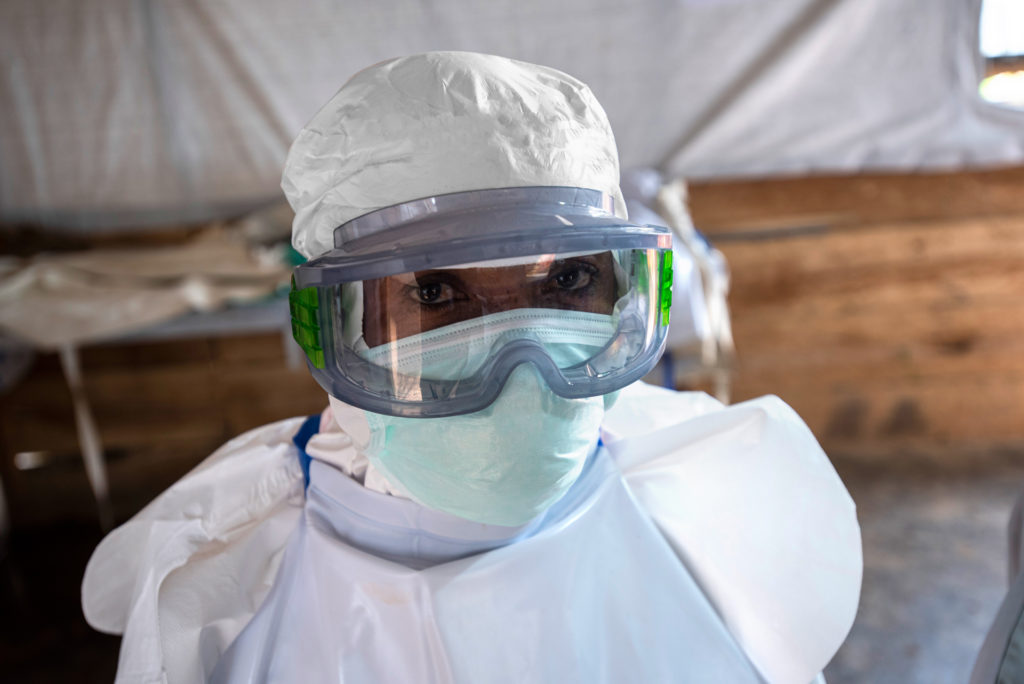The study, drawn from data gathered during West African Ebola Virus Disease (EVD) outbreak in 2014–2015, involved 360 patients diagnosed with the virus. The results found that the mortality rate among patients given the antibiotic fell to just more than half—54.7%, compared to a death rate of more than 73% among those who did not receive the drug.
Prophylactic antibiotics have been used anecdotally to treat Ebola patients for many years, but the International Medical Corps study constitutes the first evidence-based research to support this practice. The results were published in the journal Tropical Medicine and International Health in January 2020.
Dr. Adam Levine, the primary investigator of International Medical Corps’ Ebola Research Team, says that further investigation is required to follow up the results. His team plans to conduct a follow-on study using data gathered while working with a different population group: patients being treated during the current Ebola outbreak in the Democratic Republic of the Congo (DRC), where International Medical Corps is fighting to contain what has become the second-largest Ebola outbreak in history.
“The next step in the research is trying to validate this [result] in new populations,” he explains.
The International Medical Corps Ebola Research Team has assembled one of the world’s largest—if not the largest—archive of published research on the deadly virus and its treatment. The cefixime study is the 24th research paper the team has published using a trove of data carefully gathered under Dr. Levine’s direction during the West African outbreak, which—with more than 11,000 lives lost—is the largest ever recorded.
During that time, our staff of more than 1,500 worked in all three high-transmission countries—Guinea, Sierra Leone, and Liberia—and cared for more than 460 Ebola patients in five Ebola Treatment Centers (ETCs). We also assisted authorities in Mali and Guinea-Bissau, helping prepare their health systems to detect and respond to any suspected cases.
